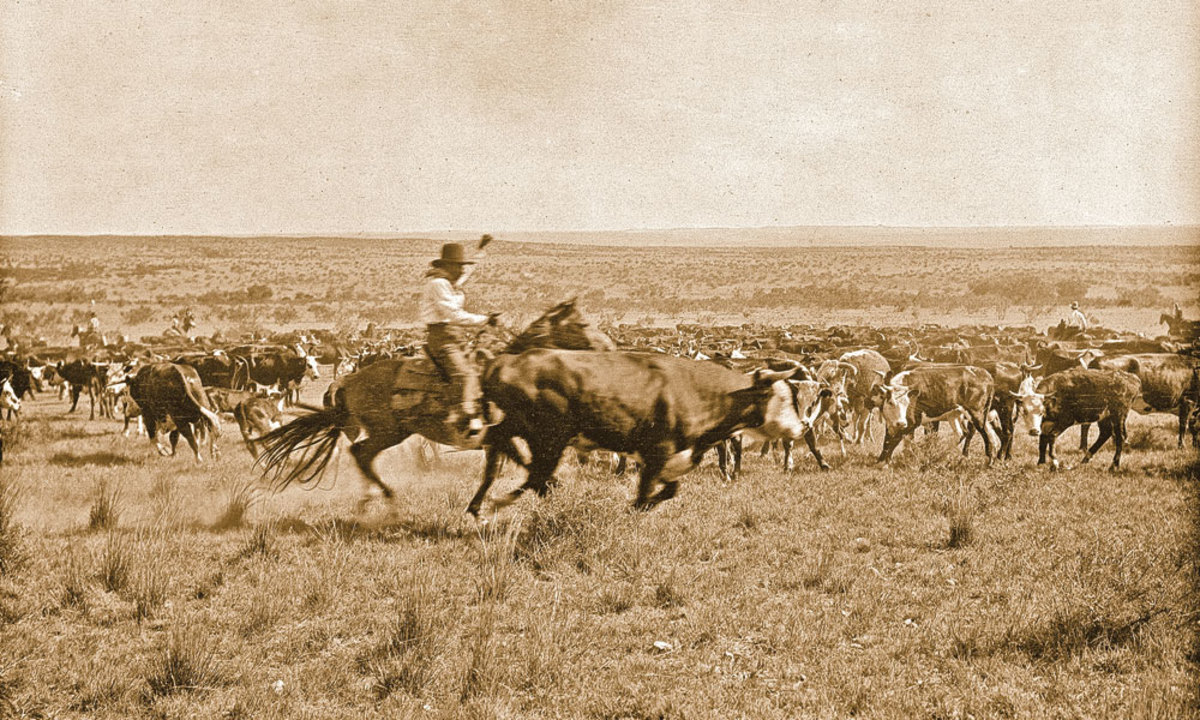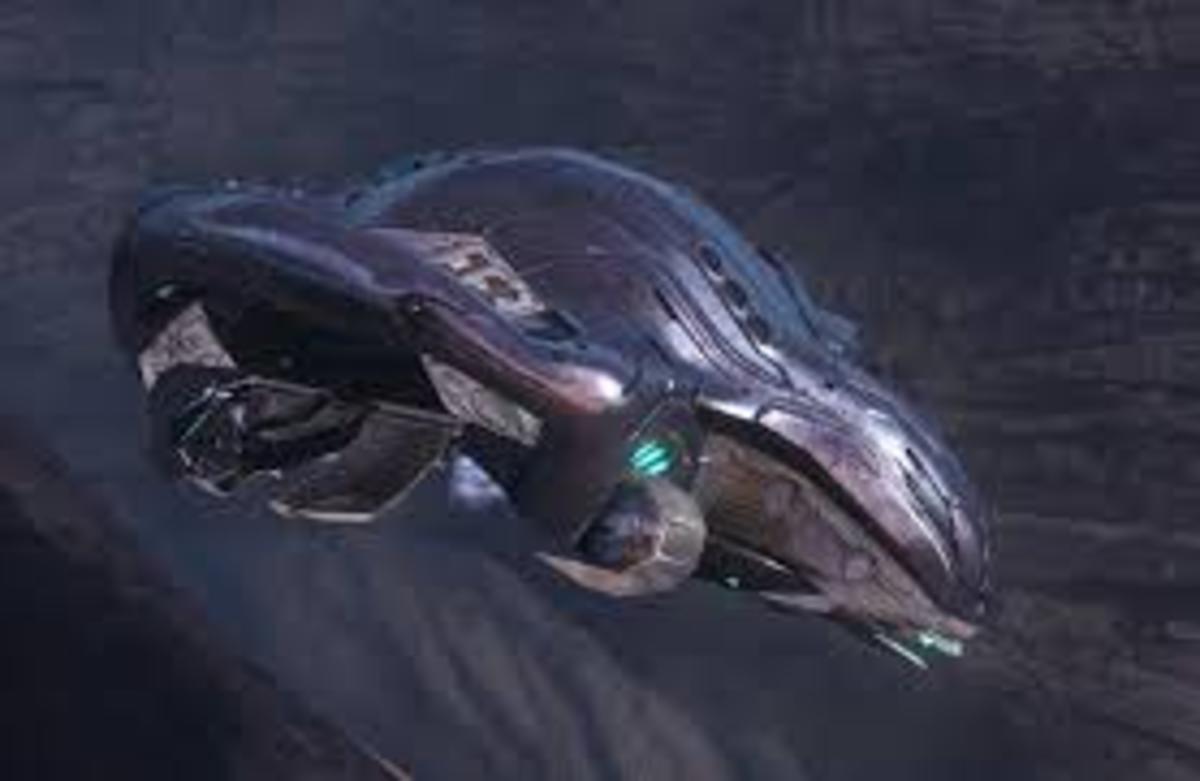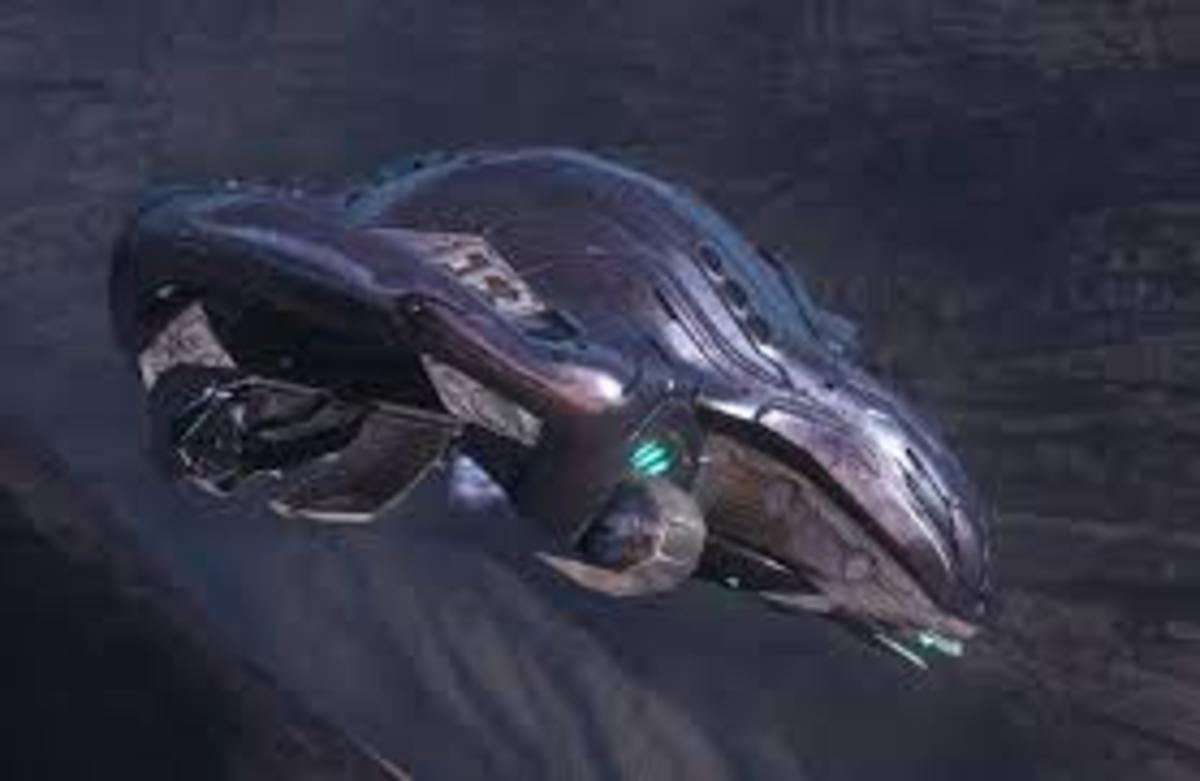- HubPages»
- Books, Literature, and Writing»
- Commercial & Creative Writing»
- Creative Writing
Into the Great Unknown: Chapter Eight
Imagine If You Will . . .
Day after day you walk. You look to the west, your intended goal somewhere off in that direction, but all you see is flat grassland, stretching to the horizon, the tall grass leaning with the wind, small swales the only break in the flatness, an occasional group of trees along the river providing a bit of shade during breaks in the traveling.
Every . . . single . . . day . . . the same thing. There was no way to judge distance. There were no landmarks to gauge anything by. From sun-up to sundown, the same scenery . . . it must have been disorienting as hell and more than a bit discouraging.
So when an honest-to-goodness landmark did appear, like Courthouse Rock, it was a big deal . . . and that’s where our travelers are in this chapter . . . the first sighting of a really big deal!
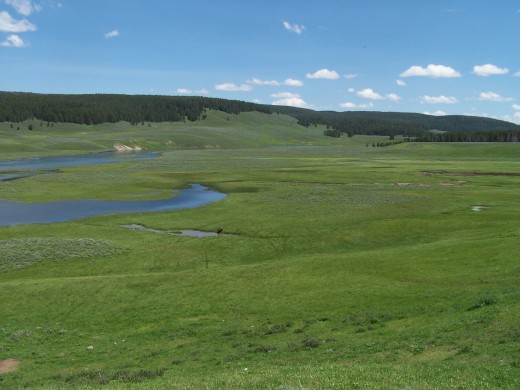
SURPRISE
We didn’t see it until we were almost at its base, some trick of the geography, some false horizon, I’m not sure which, but we came to the top of a small rise and there, about a mile ahead of us, was the much-anticipated Courthouse Rock. There was whooping and hollering all along the wagon train, people joyous over the prospect of finally marking one trail marker off of the mental map, allowing us to temporarily forget about the two poor souls we buried the night before. The stomach ailment, which had followed us since we reached the Platte River, was just too much for a mother and her son to endure. They died miserably, and were buried quickly, along the banks of the river which cost them their lives.
Such a strange sight it is, three or four hundred feet in height, perhaps two hundred yards in length, a stark sandstone sentinel rising from a perfectly flat landscape. Just to its east another monolith, known as Jail Rock, more of a vertical pillar in shape, the Courthouse and the Jail telling us, without words, that we were making progress.
We stopped along the Trail and men, women, and children walked to the towers and stood, craning their necks, in awe, mouths open. Some touched the bases; some climbed as high as was safely possible; many carved their names in the sandstone with knives, Joshua and Laura, 1845, or similar words, immortalized for future generations to gaze at.
The wind blew with relentless determination, the sun baked a tired land, and eventually the wonder of it all wore off and we resumed our singular mission westward.
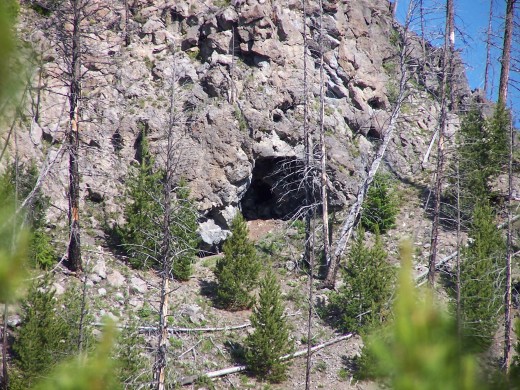
Look Yonder!
That day took us from sadness to excitement to the mundane and then expectation. Shortly before we stopped for the night, as the sun approached the distant horizon, our trail guide, Jackson, told us to “Look Yonder!” and there, to the west where he pointed, another tall spire could be seen.
“Chimney Rock ahead, pilgrims,” he told us. “We’ll camp here for the night and tomorrow morning we’ll be at its base. Five or six more days to Fort John. Then the trip gets right difficult.”
Laura grabbed my arm.
“We’ve buried seven already, Joshua. How much more difficult can it get?”
We would find out soon enough.
Mrs. Foster, from Ohio, three young ones and a farmer-husband, felt the first pains shortly after a meal of rice and bread. By seven the diarrhea had begun, with vomiting following by eight. When we awoke at five she was dead.
The Oregon Trail, I decided, was the nation’s longest cemetery.
Bud Weathers got himself kicked in the ribs by his horse. He was coughing up blood by the time we reached Chimney Rock. We buried him at its base.
“How many more, Joshua?” my wife asked me. Her lips were cracking from the intense heat, axle grease spread on them for soothing.
But the Lord taketh and giveth in equal measures, and by noon that day a young mother from Kentucky, not much older than sixteen, gave birth to a healthy baby boy, the women of the train fussing over her, providing care, one big extended family welcoming a new member.
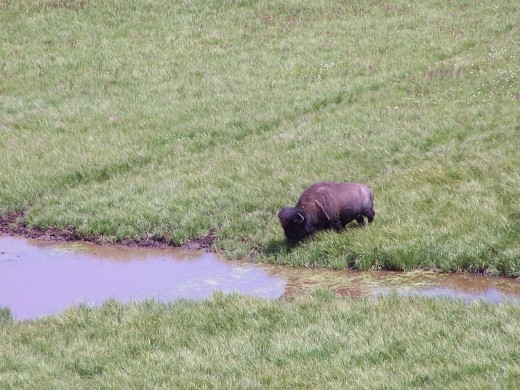
The End of Another Day
Chimney Rock was nothing more than a memory as we came to the end of another day at seven that evening. Instead of immediately circling the wagons, it was suggested by Jackson that we all pull our wagons into the river to cool off the iron rims.
“The heat will cause some problems with those wheels and rims, pilgrims,” he said. “Best we cool them off each night from here on, as long as this heat continues.”
By eight we were in the accustomed circle, and meals were eaten without much enthusiasm. Tin on tin was about the only sound that evening, spoons scraping plates, the sighs of the exhausted making no sounds. After the meal, several families commenced to empty items from their wagons, considered dead weight unnecessary for the remainder of our trip. Someone broke out a harmonica, and the mournful sounds of Amazing Grace rolled across the great prairie as hawks soared relentlessly in search of the weak. That song was followed by one I didn’t recognize, a tune suitable for dancing, and by the firelight folks got up and danced, flames jumping, tired bodies swaying, coyotes singing, the newborn crying, desperate smiles keeping the fear at bay for an hour or so until exhaustion finally had its way and the camp, as one, broke out the bedrolls and prepared to settle down. The smell was not a pleasant one as a hundred or more folks did their natural duty, squatting amongst the reeds along the river, cleaning off in the tepid waters, one eye ever watchful for snakes.
The western horizon faded from view. The blackness covered us as a blanket.
“Get some sleep, pilgrims,” Jackson shouted from the center of the circle. “Community meeting at six in the morning. We’ve got some matters to discuss.”
Guard Duty
I kissed Laura goodnight, said the same to our children, grabbed my musket and walked out to the western perimeter of the train for guard duty. Another man would relieve me at two. Within an hour the sounds of the train had disappeared and the wind dominated the scene, competing with the constant flow of water, the coyote and prairie wolf howls, the heat releasing its grip on the land for a few blessed hours. Occasionally some coughing could be heard, or someone talking in his sleep. Straight ahead, as I stood watch, the prairie spread out under a million stars. I struck a match, lit up my pipe, inhaled deeply, felt the stress of the day wash out of me, and . . .
A gun fired and a bullet buzzed by my ear!
TO BE CONTINUED
Authors notes: the early Trail was littered with items, considered too valuable to leave back east, but discarded early on to make the wagons lighter to pull. In fact it is reported that the Mormons, during their trek west, made considerable profit from those discarded items, carrying them west and selling them at forts along the Trail.
Easily the number one cause of death on the Oregon Trail was accidental death. Remember, these were mostly farmers who had no experience with survival on a grueling, six-month trip. Crossing rivers was a dangerous undertaking. Simple guard duty was dangerous as rattlesnakes became active as the cool of the evening settled in. Many fell from wagons, some were run over by wagons, and some were shot accidentally by discharged weapons.
And if the accidents didn’t get you, chances were good that cholera would. The unsanitary conditions along the Trail were abhorrent, and it was not unheard of for a traveler to feel fine in the morning and be dead by nightfall because of intestinal ills.
But still they continued westward!
2017 William D. Holland (aka billybuc)






